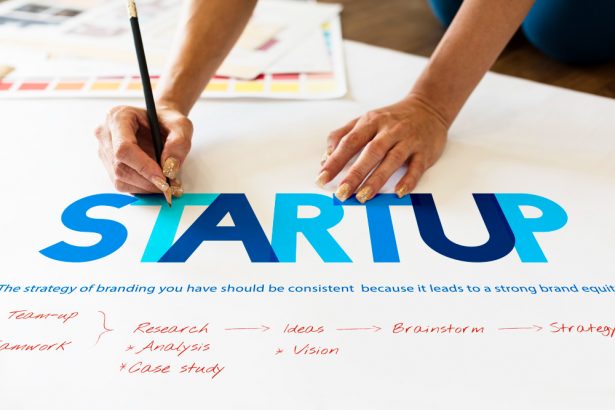As we move through 2025, artificial intelligence (AI) has evolved from being an experimental technology to becoming the central nervous system of modern business strategy. Across industries—from manufacturing and healthcare to finance, logistics, and retail—organizations are no longer treating AI as a supporting tool but as a strategic partner that guides core decision-making and competitive positioning.
The transformational role of AI lies in its ability to synthesize vast streams of structured and unstructured data, interpret real-time patterns, and generate actionable insights that influence everything from market forecasting to product innovation. Executives today don’t just rely on historical performance reports—they depend on predictive models that anticipate customer behavior, supply chain disruptions, and macroeconomic shifts before they materialize. This predictive foresight enables companies to move from reactive to proactive strategies.
Machine learning algorithms have matured dramatically, allowing firms to move beyond static dashboards toward dynamic systems that continuously learn from new information. In the retail sector, AI personalizes the consumer journey by analyzing browsing behavior, purchase intent, and emotional engagement to deliver hyper-customized experiences. In manufacturing, intelligent automation coordinates production schedules with fluctuating demand patterns, minimizing waste and maximizing throughput. Financial institutions use AI to assess credit risk in real time, identify fraud, and provide customized financial solutions to customers through conversational agents.
Decision-making, once the exclusive domain of executive judgment and market intuition, is now augmented by AI’s computational precision. This does not diminish the role of human leadership; rather, it redefines it. Leaders are increasingly focusing on ethical oversight, creative strategy, and long-term vision, while delegating analytical and operational execution to AI systems. This partnership between human insight and digital intelligence represents a fundamental shift in corporate culture—one where strategic agility and cognitive collaboration become competitive differentiators.
In 2025, the balance between human intuition and AI-driven precision has become the hallmark of strategic success. The organizations leading this transformation are those that not only deploy AI technologies but also integrate them into the fabric of their corporate identity. These companies view AI not simply as technology but as an evolving capability that continuously reconfigures how value is created, delivered, and sustained in a data-driven economy.
In 2025, the strategic landscape is defined by AI-driven ecosystems that operate as living, learning networks. Businesses no longer rely solely on traditional strategic models but are adopting cognitive frameworks that can sense, respond, and adapt to changing market conditions in real time. These frameworks combine predictive analytics, generative AI, and automation to identify opportunities, mitigate risks, and accelerate transformation across every tier of the enterprise.
Cognitive computing has become the backbone of these new strategic architectures. By processing multimodal data—from social media sentiment and economic indicators to IoT sensor feeds—AI systems build comprehensive situational awareness that informs everything from investment strategies to supply chain coordination. Predictive ecosystems enable organizations to run thousands of scenario simulations, enhancing resilience and minimizing uncertainty in an increasingly volatile global market.
Generative AI, in particular, has emerged as a powerful accelerator of innovation. Within R&D, generative design tools help engineers and product developers create optimized prototypes in record time, balancing performance, cost, and sustainability. In marketing and content creation, generative systems assist in crafting campaigns tailored to audience preferences and cultural nuances, maintaining brand authenticity while scaling creative output.
Human-AI collaboration is now a defining competency of forward-looking enterprises. Rather than replacing human skill sets, AI amplifies them. Knowledge workers interact with AI copilots that handle data synthesis, provide insights, and even co-generate ideas, allowing teams to focus on higher-value thinking and innovation. This synergy has redefined productivity: success is measured not only by efficiency but also by creativity and organizational learning speed.
From an operational standpoint, AI has reimagined the pillars of business execution. Intelligent automation streamlines workflows, predictive maintenance reduces downtime across industrial operations, and AI-driven supply chain management ensures optimal inventory, reducing both cost and environmental impact. The result is not just efficiency—it’s sustainable competitiveness that aligns business growth with ecological responsibility and societal expectations.
The strategic imperative for 2025 and beyond is clear: companies must embed AI into every layer of their business model—not merely as a tool but as a strategic mindset. This means investing in robust data infrastructure, fostering interdisciplinary collaboration between technologists and business leaders, and prioritizing transparency and ethical governance in AI deployment.
As we look to the future, the defining feature of successful businesses will not be their size, history, or even resources, but their capacity to learn, adapt, and co-evolve with intelligent systems. Artificial intelligence is no longer shaping individual decisions—it is shaping the very DNA of business strategy itself. In this new era, corporate success will be measured by how effectively organizations harness the symbiosis between human leadership and machine intelligence to craft strategies that are not only profitable but also responsible, agile, and enduring.






